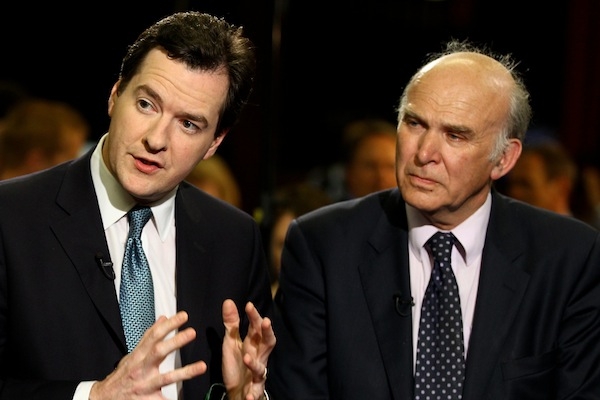Welfare will be one of the key battlegrounds at the next general election, and George Osborne’s Welfare Uprating Bill will certainly be one way the Conservative party can prod Labour on what is a hugely awkward policy issue for the party. It accelerates the internal debate about how Labour can appeal to the electorate on the issue of welfare while staying true to its own core beliefs, and, Tory strategists hope, will cause some ructions.
While the party appeared united in Manchester at its autumn conference in September, it faces hard times ahead as it tries to answer some of the big questions about what a Labour welfare state would look like. Liam Byrne, the shadow work and pensions secretary, is more switched on to this than some in his party, and this doesn’t always make him particularly popular with colleagues or the grassroots members. Today in the Commons, though, he attacked the uprating decision, calling it a ‘strivers tax’. Byrne said:
‘The news for working people was a disaster. Buried in the small print of yesterday’s budget is the brutal truth that this was a budget for unemployment… Today and yesterday we learned that it is working people who are going to pay the price. We already have over 6 million working people in poverty in this country, but the Resolution Foundation said yesterday that 60 per cent of the Uprating Bill the minister spoke of will be paid by working people. It is a strivers’ tax… These are the strivers and battlers that the Prime Minister promised to defend at his party conference, and they are the people paying the price for this government’s failure.’
The interesting question for Byrne will be whether Labour might support the 1 per cent rise in benefits if working tax credits and maternity pay were stripped out: it could be an amendment that the party brings to make the debate about supporting working people, and to try to defuse the Chancellor’s attack on the party’s welfare policy.
But it’s not just Labour that the Tories want to provoke on welfare. That the pre-autumn statement briefings included the refusal of the Liberal Democrats to support cuts to housing benefit for under-25s suggests the spinners want to get the message across to voters that a majority Conservative government could do so much more of what voters want without the restraining influence of Nick Clegg’s party.
The Lib Dems are proud of that restraining influence: Vince Cable was also pretty keen to create some distance between himself and George Osborne on the way the Chancellor portrays benefit claimants when he appeared on the World at One this afternoon. Responding to an interview with a woman who claimed benefits and resented being labelled a ‘scrounger’, the Business Secretary said:
‘I think the thing I really identified with what she said was this resentment of being regarded as a scrounger. I think that kind of approach and language is completely wrong, she’s obviously working really hard and is a really responsible parent and we should do everything we can to support her, obviously.
‘I made it fairly clear that that stuff about people being unemployed at home with the curtains drawn is no the way, certainly I would have addressed it. I think most people out there are looking for work, most people in this country are very conscientious, and we should do what we can to support them.’
His remarks were quite clearly aimed at Osborne’s statement yesterday, and the imagery he used in his speech at the Tory conference. For what it’s worth, labelling benefit claimants who receive the amount of money they are legally entitled to as ‘scroungers’ is a lazy way of approaching reform to the welfare system. It blames people who are entitled to make those claims for the failings of the system itself such as its inflexibility and the inappropriate generosity that it might have in paying someone housing benefit for a property that should they return to work they could never hope to afford unless they immediately became a high-earner. That is not the fault of the claimant; it is the system, and politicians should not need to use such pejorative language when there is a perfectly reasonable debate to be had about fairness.
But though the Lib Dem leadership at least is signed up to the Welfare Uprating Bill, expect plenty of positioning by Cable and other colleagues over the next few months as the Coalition sets its elephant trap for Labour.







Comments